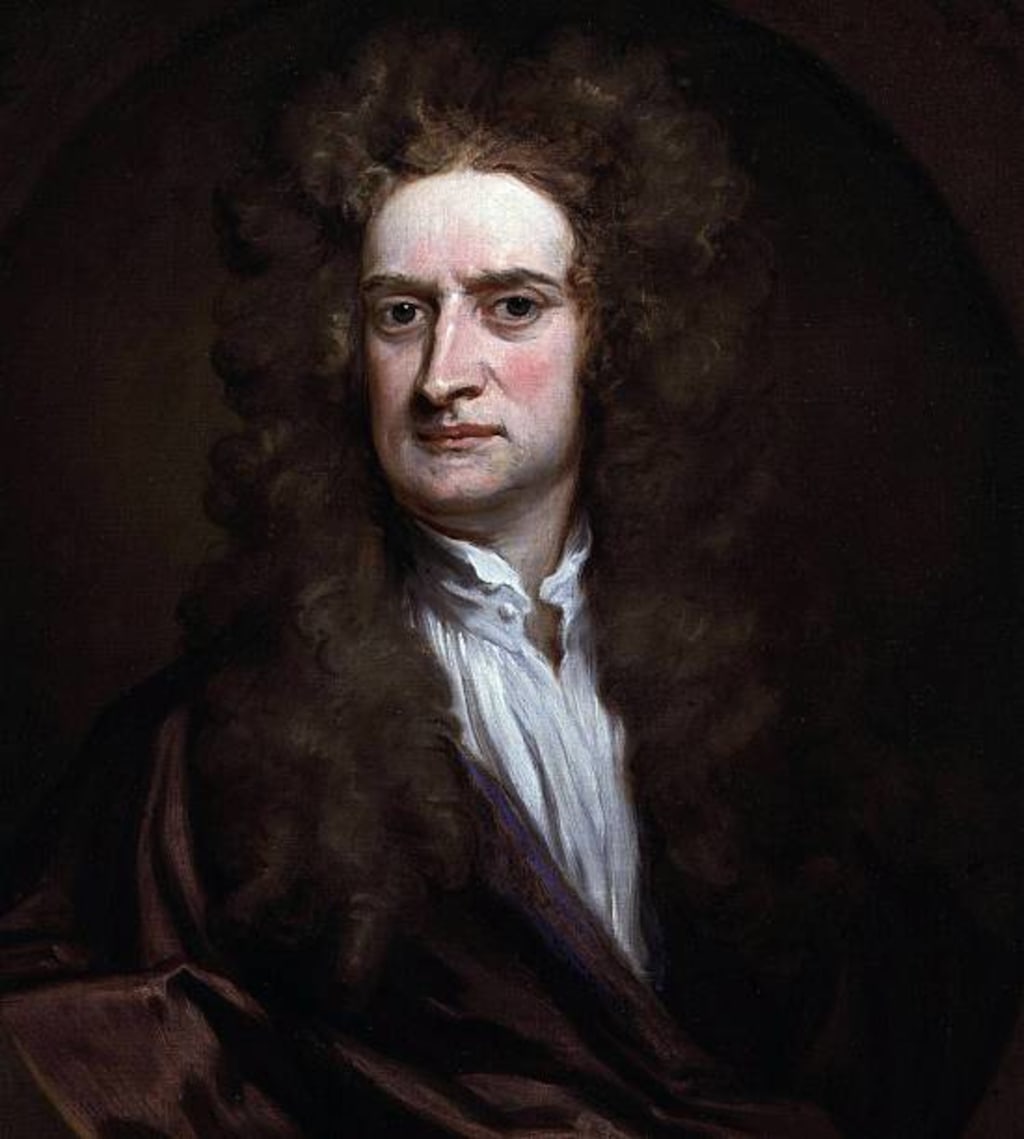The Faith Behind the Famous: Isaac Newton
Alexander Pope’s well-known epitaph epitomized Isaac Newton’s fame. Even in Newton’s lifetime, his contemporaries’ adulation verged on worship. Following his death in April 1727, Newton lay in state in Westminster Abbey for a week. At the funeral, his pall was borne by three earls, two dukes, and the Lord Chancellor. Voltaire observed, “He was buried like a king who had done well by his subjects.” No scientist before or since has been so revered and interred with such high honor.

Isaac Netwon is synonymous with apples and gravity. He rose to become the most influential scientist of the 17th century, his ideas becoming the foundation of modern physics, after very humble beginnings. But first, the big question: Did an apple really fall on Newton's head and spur him to figure out gravity? Historians say there is likely no more than a grain of truth to the story.
Sir Isaac Newton was born, premature and tiny, in 1642 in Woolsthorpe, England. His father, wealthy but uneducated, died before Newton was born, and he ended up being raised by his grandmother after his mother remarried. It’s said he didn’t excel at school, but he ended up studying law at Trinity College Cambridge, part of Cambridge University. He worked as a servant to pay his bills. And he kept a journal about his ideas.
What got Newton interested in math? He bought a book on the subject and couldn't comprehend it. After getting his bachelor's degree in 1665; he studied math, physics, optics and astronomy on his own (Cambridge was closed for a couple of years due to the plague known as the Black Death). By 1666 he had completed his early work on his three laws of motion. Later he got his master's degree.
Later work focused on the diffraction of light (he used a prism to discover that white light is made of a spectrum of colors) and the concepts he'd become known for: universal gravitation, centrifugal force, centripetal force, and the effects and characteristics of bodies in motion. His laws are still used by physics students today:Who was this man whose stature has dominated the scientific landscape for three centuries? Why did his achievements have such an impact on society? What role did Newton’s faith play in his life and work?
Newton’s Faith
For Newton the world of science was by no means the whole of life. He spent more time on theology than on science; indeed, he wrote about 1.3 million words on biblical subjects. Yet this vast legacy lay hidden from public view for two centuries until the auction of his nonscientific writings in 1936.
Newton’s understanding of God came primarily from the Bible, which he studied for days and weeks at a time. He took special interest in miracles and prophecy, calculating dates of Old Testament books and analyzing their texts to discover their authorship. In a manuscript on rules for interpreting prophecy, Newton noted the similar goals of the scientist and the prophecy expositor: simplicity and unity. He condemned the “folly of interpreters who foretell times and things by prophecy,” since the purpose of prophecy was to demonstrate God’s providence in ...“This most beautiful system of the sun, planets, and comets, could only proceed from the counsel and dominion of an intelligent and powerful Being … This Being governs all things, not as the soul of the world, but as Lord over all; and on account of his dominion he is wont to be called Lord God.”
“When I wrote my treatise about our system, I had an eye upon such principles as might work with considering men for the belief of a Deity, and nothing can rejoice me more than to find it useful for that purpose.”
On interpreting Scripture: “It is the perfection of all God’s works that they are done with the greatest simplicity … And therefore, as they that would understand the frame of the world must endeavor to reduce their knowledge [science] to all possible simplicity, so it must be in seeking to understand these [prophetic] visions.”
“The true God is a living, intelligent and powerful Being … He governs all things, and knows all things that are or can be done.”
“I don’t know what I may seem to the world, but, as to myself, I seem to have been only like a boy playing on the sea shore, and diverting myself in now and then finding a smoother pebble or a prettier shell than ordinary, whilst the great ocean of truth lay all undiscovered before me.”





Comments
There are no comments for this story
Be the first to respond and start the conversation.